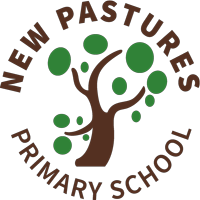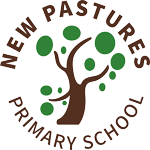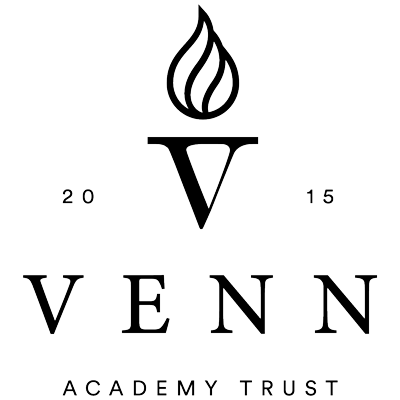Maths – curriculum information
Intent
- To aim to provide the best possible mathematics start for each pupil and explore maths through a mastery curriculum approach
- For our pupils to understand and realise that mathematics has been developed over centuries and is hugely important as we use it in every aspect of our lives at school, work, and in practical everyday activities at home and beyond.
- To enable pupils to communicate their mathematical ideas and thoughts effectively
- For our pupils to have good mathematical skills as we recognise these are essential to us as teachers and parents in helping our children learn, in order that they can make the best decisions in life.
- To provide all pupils with the opportunity to succeed, become confident, competent mathematicians
- To be able to apply maths skills in daily life.
Implementation
- Our mastery approach to the curriculum is designed to develop children’s knowledge and understanding of mathematical concepts from the Early Years through to the end of Y6.
- Link maths to real life situations- where possible- put into context. E.g- recognising we use maths when we go shopping or plan a holiday, decide on a new home or decorate a room.
- Quality first teaching linked to teacher’s standards is applied. We follow the national curriculum and use White Rose schemes, as a guide to assist with planning and assessment.
- Our Mathematics curriculum is cumulative – each school year begins with a focus on the concepts and skills that have the most connections, and this concept is then applied and connected throughout the school year to consolidate learning. This gives pupils the opportunity to ‘master maths.’ By using previous learning throughout the school year, they are able to develop mathematical fluency and conceptual understanding.
- Each plan is adapted to suit the needs of our children. Pupils in Early Years engage in various mathematical experiences which starts them on their journey to mastery and learning.
- Long term planning: National Curriculum and White Rose maths guidance.
- Medium term planning: Units of work are blocked to make sure that the requirements of the 2014 National Curriculum for England are fully met.
- Short term planning: Daily lesson plans identifying the strategies that are being taught.
- Pupils move together through the learning order to avoid gaps in understanding. Each child is taught their age groups objectives throughout the year. Misconceptions are addressed and children are provided with additional scaffolding, which could be adult support, concrete resources or adapted work. Those children successfully accessing the learning will be given the opportunity to deepen their understanding through reasoning and problem solving questions.
- CONCRETE – All pupils have the opportunity to use concrete objectives and manipulatives to help them understand and explain what they are doing.
- PICTORIAL – Pupils then build on this concrete approach by using pictorial representation, which can then be used to reason and solve problems.
- ABSTRACT – Pupils can move to the abstract once understanding is achieved.
- We use a variety of assessment techniques formative and summative to identify gaps in learning or areas of weakness and scaffold learning. These include pre-teach (working in small groups prior to the lesson) and same day intervention (small groups completing further work to ensure they are ready to move on to the next day’s learning). If the majority have struggled, misconceptions are identified and addressed.
- Use of formal assessments: Termly assessments (White Rose) used to assess pupils’ learning at the end of each term.
- Half termly assessments (White Rose end of unit) are designed to assess pupils’ learning within the units covered that half term. This will help identify any children falling behind and appropriate provisions will be put in place.
- Teacher assessment – if children are not able to access the end of unit test, then the teacher will assess individual children or groups.
- Ongoing in class assessment and Afl strategies will be used each lesson to ensure that learning is matched to pupils abilities and that children are appropriately challenged and moved on where appropriate.
- Moderation is carried out in a variety of ways- teaching and learning reviews and book scrutiny. All assessment/moderation is discussed at pupil progress meetings and staff performance management meetings.
- The focus of a mastery approach to Mathematics ensures that pupils acquire a deep, long term, secure and adaptable understanding of the subject.
- Quick recall of facts and procedures.
- Use of the correct mathematical language.
- The flexibility and fluidity to move between different contexts and representations of mathematics.
- The ability to recognise relationships and make connections in mathematics.
- Showing a mathematical concept or skill has been mastered by representing in multiple ways, using the mathematical language to explain their ideas and independently apply the concept to new problems in unfamiliar situations.
- Pupils develop their growth mind-set and are more able to reflect on their learning. They demonstrate the learning behaviours used throughout the curriculum- perseverance, resilience collaboration, independence, creativity and engagement.
Impact
- The focus of a mastery approach to Mathematics ensures that pupils acquire a deep, long term, secure and adaptable understanding of the subject.
- Quick recall of facts and procedures.
- Use of the correct mathematical language.
- The flexibility and fluidity to move between different contexts and representations of mathematics.
- The ability to recognise relationships and make connections in mathematics.
- Showing a mathematical concept or skill has been mastered by representing in multiple ways, using the mathematical language to explain their ideas and independently apply the concept to new problems in unfamiliar situations.
- Pupils develop their growth mind-set and are more able to reflect on their learning. They demonstrate the learning behaviours used throughout the curriculum- perseverance, resilience collaboration, independence, creativity and engagement.
- Pupils will leave New Pastures with a set of skills to enable them to complete daily real-life tasks involving maths.


